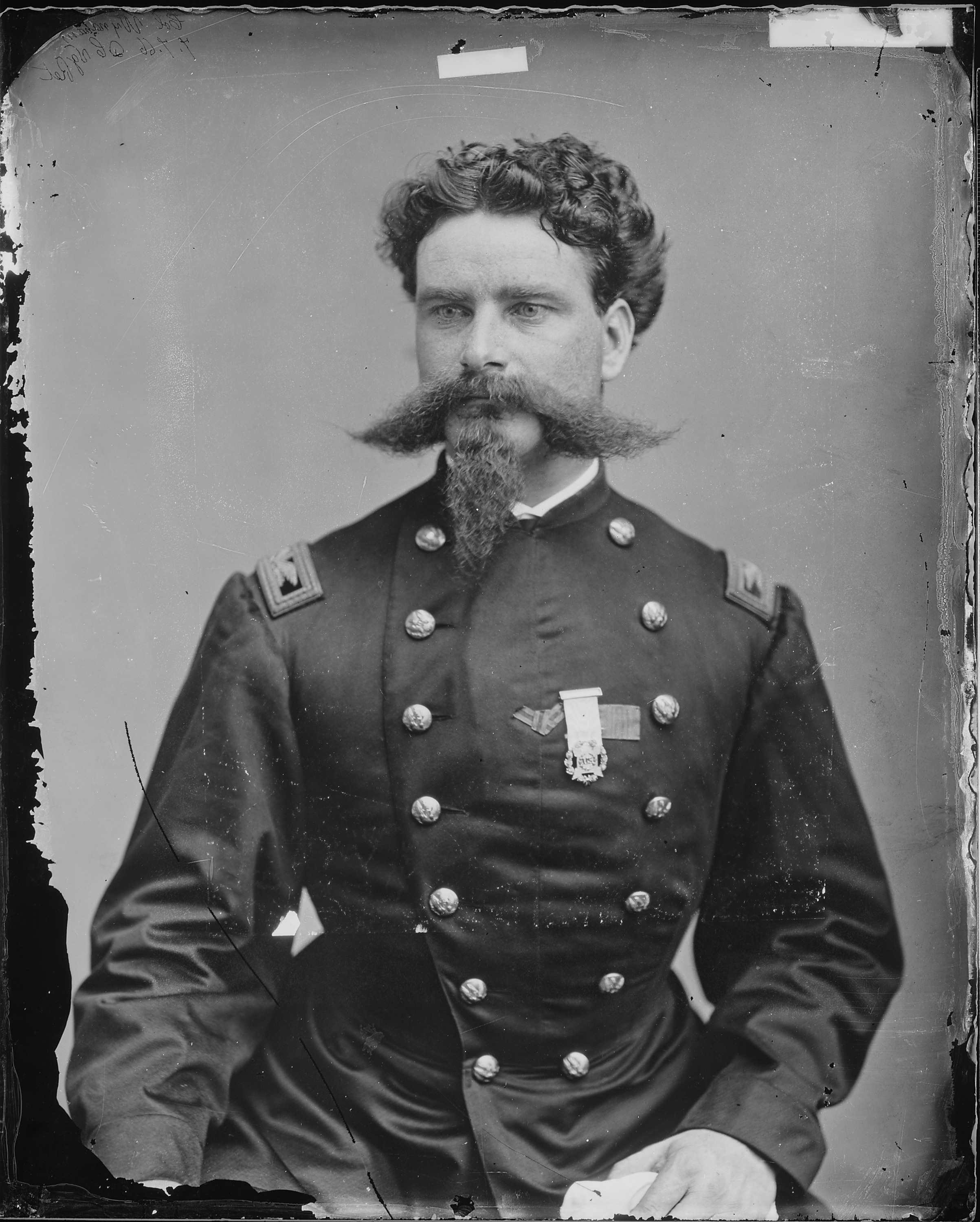
Sir Percy Wyndham
Of the colorful characters of the war, Percy Wyndham was not even a citizen of the United States. He was an English soldier of fortune He was a bit of an enigma. He was born on a ship in the English Channel in 1833 and came to America proclaiming to have been a sailor in the French Navy, a soldier in the British Army, the Austrian Army, and as one of Garibaldi's Volunteers. Many proclaimed that he was a fraud. Very little seems to be certain about the man except for the fact that he arrived in America to fight for the North and was made a colonel of New Jersey Cavalry.
Wyndham was very tall, always dressed nice, and a bit of a show off. He came to Virginia bragging that he would capture or kill Confederate Cavalryman Turner Ashby. Ashby had received word that Wyndham and a group of picked cavalry were out to get him. He told his men that he didn't want Wyndham to gain any reputation at his expense.

Brigadier General Turner Ashby
The two men would meet on June 6, 1862 in Harrisonburg, Virginia. Wyndham rode south in search of Ashby with 400 New Jersey cavalrymen. He soon spotted some of Ashby's troopers. Turner Ashby was fighting a rearguard action for Stonewall Jackson with the support of some of Richard Ewell's infantry. Ashby had set up an excellent ambush for any approaching Federals. He placed one of his cavalry regiments in the middle of the road for Wyndham to see while hiding another cavalry regiment and some infantry in some nearby woods.
Wyndham immediately charged right into the ambush. He was quickly surrounded by Confederate infantry and cavalry. It was over in an instant. Seeing his men fleeing in panic, Wyndham shouted, "I will not command such cowards!" He then was taken prisoner himself.
Wyndham was not amused having been captured by the very man he'd bragged about getting himself. Ashby's troopers taunted their prisoner all the way to the rear. Wyndham became the most upset when many of the Rebel soldier's began calling him a "Yankee Colonel."
Wyndham replied, "I'm not a Yankee, you damned Rebel fool." Of course this just seemed to make matters worse for him as the Confederate troops roared in laughter at his bad luck. The Confederate's quickly added that Wyndham was a mercenary, not a soldier of any kind, but the same as a Yankee. This infuriated Wyndham to the point that he asked the soldiers to stand there in the road and fight him with fists. The Confederate's were content to just irritate him that much more.
Sadly, for Turner Ashby, he couldn't leave well enough alone. Colonel Thomas Munford noticed that Ashby was setting up another ambush. He told Ashby that he'd accomplished a great thing, but he should let well enough alone. Ashby didn't listen. Later that same afternoon, he was killed attempting to fight Federal infantry. The above photograph shows Ashby deceased and propped up with what appear to be flowers placed in his hand.
Percy Wyndham would be released in a prisoner exchange one week later. He would see action at Thoroughfare Gap and be wounded at Brandy Station. He was soon called a fraud by the English politician Percy S. Wyndham.
Union General Joseph Hooker liked Wyndham and recommended his promotion. Rumors were circulating that Wyndham was contemplating joining the Confederate Army. He never got the promotion.
Following the war, Wyndham joined the Italian Army and later moved to India. There he was forced to sell all of his military decorations to support himself. He began giving lessons on hot air balloons. On January 27, 1879, his balloon burst and he fell over 300 feet (some accounts say 500 feet) to his death in a lake near Rangoon, Burma. He was 45 years old.

Wyndham was one of the first "pilots" to die

Sir Percy Wyndham







